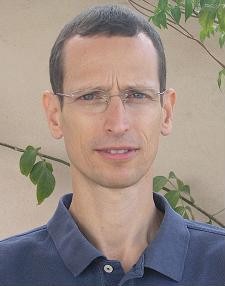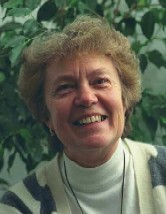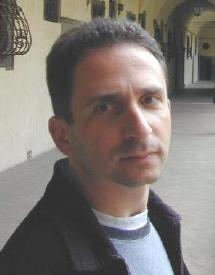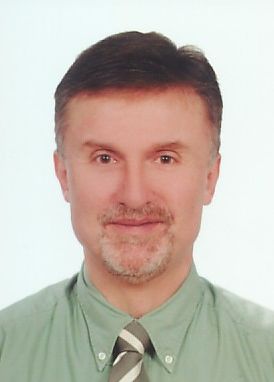PAPERS, DETAILED PROGRAM, AND INFO - LOCAL INFORMATION
|
Announcements
|
||||
| Feb 16 | Some changes to the schedule (see a similar section of Announcements there). | |||
| Feb 16 | Weather: a bit better today, rather sunny, but still cold. | |||
| Feb 15 | Weather in Haifa: around 10-15C. Please be prepared, just in case, for possibly cold, windy and rainy weather, especially for the tours. | |||
| Feb 10 | This week A. Gelbukh is travelling to Israel and may not read him email (you can try calling him at cell phone). For urgent issues please contact Prof. Wintner: first at the address indicated here, and only if this does not work out and in case of real emergency, at his personal address or phone. For urgent organization issues, you can also try contacting Ms. Rona Perkis. | |||
| Feb 10 | For presentations, we will have a PC with PowerPoint and a PDF reader. Please have your presentation on a USB drive and upload it to the provided computer before the session, to save time between talks. If you need any special equipment please write to Prof. Wintner. For the poster session we will provide easels and pins. | |||
| Feb 10 | For the Sunday excursion, we will meet at the lobby of the Dan Panorama hotel at 8:00 am. Don't be late -- the bus cannot wait. On Monday, we will provide transportation from the Dan Panorama to the University. The bus will leave at 8:30am. | |||
| Feb 10 | LNCS book at the Springer's site is here. From the program page you can also download all abstracts in one file, as well as poster papers. | |||
| Feb 9 | Detailed program and related info: now includes a complete list of accepted papers including posters. | |||
| Dec 20 | Updated local information page is published. Before asking questions to local organizer, please check if this page does not contain an answer. | |||

9th International Conference on Intelligent Text Processing and Computational Linguistics
February 17 to 23, 2008, Haifa, Israel
|
|
|
Language |
|
|
|
|||||||
Publication:
Springer
Lecture Notes in Computer Science;
posters: J. Language Forum and Research in Computing
Science.
Tours: Jerusalem, North of Israel (Nazareth,
Sea of Galilee, etc.), Haifa (Bahai Gardens).
Keynote speakers:
Ido Dagan,
Eva Hajičová,
Alon Lavie,
Kemal Oflazer.
Awards: Best Paper award, Best Presentation award, Best Poster award.
Endorsed by the Association for Computational Linguistics (ACL).
|
Bahai Gardens, Haifa
See also photos of past CICLing-2000, 2001, 2002, 2003, 2004, 2005, 2006, 2007 |
Call For Papers
Please distribute! Plain text version of CFP, Poster: PDF, DOC
This conference is the ninth CICLing event. The past CICLing conferences have been very successful, according to the comments of the participants: Fantastic conference! (Martin Kay, 2004), Everything was just great! Super-hyper-ultra-well done! (Igor Mel'cuk, 2000). We consider the following factors to define our identity:
![]() Excellent
keynote speakers. We invite the most prominent scientists of the
field to give keynote talks which, unlike at many other conferences, are published
in extenso in the Proceedings. They also organize an additional tutorial or
discussion, and usually even participate in the excursions, where you can speak
with them in an informal environment. [Past
participants' opinions]
Excellent
keynote speakers. We invite the most prominent scientists of the
field to give keynote talks which, unlike at many other conferences, are published
in extenso in the Proceedings. They also organize an additional tutorial or
discussion, and usually even participate in the excursions, where you can speak
with them in an informal environment. [Past
participants' opinions]
![]() General interest.
The conference covers nearly all topics related to computational linguistics and
text processing. This
makes it attractive for people from different areas and leads to vivid and
interesting discussions and exchange of opinions.
General interest.
The conference covers nearly all topics related to computational linguistics and
text processing. This
makes it attractive for people from different areas and leads to vivid and
interesting discussions and exchange of opinions.
![]() Informal interaction.
The conference is intended for a
rather small group of
professionals. This allows for informal and friendly
atmosphere, more resembling a friendly party than an official event. At CICLing
you can pass hours speaking with your favorite famous scientists who you
scarcely could even greet in the crowd at large conferences.
Informal interaction.
The conference is intended for a
rather small group of
professionals. This allows for informal and friendly
atmosphere, more resembling a friendly party than an official event. At CICLing
you can pass hours speaking with your favorite famous scientists who you
scarcely could even greet in the crowd at large conferences.
![]() Excellent cultural program. The conference is
intended for people feeling themselves young in their souls, adventurous
explorers of both science and life. Our cultural program brings the
participants to unique marvels of history and nature hidden from ordinary
tourists.
Excellent cultural program. The conference is
intended for people feeling themselves young in their souls, adventurous
explorers of both science and life. Our cultural program brings the
participants to unique marvels of history and nature hidden from ordinary
tourists.
![]() Participants'
choice. At CICLing-2007 held in Mexico City, we asked the attendees to vote
for the venue for the next (2008) event, offering them a wide variety of
countries and regions. By the number of votes, Israel was the clear winner
(followed by Mexico). Therefore it is not our choice, it is your
choice!
Participants'
choice. At CICLing-2007 held in Mexico City, we asked the attendees to vote
for the venue for the next (2008) event, offering them a wide variety of
countries and regions. By the number of votes, Israel was the clear winner
(followed by Mexico). Therefore it is not our choice, it is your
choice!
![]() Haifa
is safe. Haifa is the third largest city of the country (1 million
inhabitants metropolitan area) peacefully shared by Jewish (90%) and Arabic (9%) people. It is a
prosperous city located in the North-West of the country, far from its problematic
South-Eastern regions. Haifa is generally a safe city, and random crime,
including petty crime, is rare.
Haifa
is safe. Haifa is the third largest city of the country (1 million
inhabitants metropolitan area) peacefully shared by Jewish (90%) and Arabic (9%) people. It is a
prosperous city located in the North-West of the country, far from its problematic
South-Eastern regions. Haifa is generally a safe city, and random crime,
including petty crime, is rare.
![]() Scientific
capital. In spite of its 2300-years history, Haifa is a highly developed
modern city famous for its science and technology development. It hosts two universities: the University
of Haifa and
Technion -- both hosting strong computational linguistics groups -- as well as
research centers of Microsoft, IBM, Intel, and Google, among others.
Scientific
capital. In spite of its 2300-years history, Haifa is a highly developed
modern city famous for its science and technology development. It hosts two universities: the University
of Haifa and
Technion -- both hosting strong computational linguistics groups -- as well as
research centers of Microsoft, IBM, Intel, and Google, among others.
![]() Touristically
convenient location. Haifa is located between the Northern region
with Christian holy places such as Sea of Galilee and Nazareth, and Central
region with Jerusalem -- the holy place of Christians, Jews, and Muslims. We will
have convenient tours to both regions. By the way, Haifa is the world's center
of Bahá'í Faith whose
holy place we will also visit.
Touristically
convenient location. Haifa is located between the Northern region
with Christian holy places such as Sea of Galilee and Nazareth, and Central
region with Jerusalem -- the holy place of Christians, Jews, and Muslims. We will
have convenient tours to both regions. By the way, Haifa is the world's center
of Bahá'í Faith whose
holy place we will also visit.
Organization
The conference is co-organized by the University of Haifa, Israel, and the Natural Language and Text Processing Laboratory of the CIC (Center for Computing Research) of the IPN (National Polytechnic Institute), Mexico; held at the University of Haifa; hosted by the Computational Linguistics Group and CRI (Caesarea Edmond Benjamin de Rothschild Foundation Institute for Interdisciplinary Applications of Computer Science) at University of Haifa; and financially supported by the University of Haifa and the Center for Complexity Science.
In general, we are interested in whatever helps, will help eventually, or might help computers meaningfully process language data.
The conference is intended to the exchange of opinions between the scientists working in different areas of the growing field of computational linguistics and intelligent text processing. Our idea is to get a general view of the state of art in computational linguistics and its applications.
Areas of interest include, but are not limited to, the following topics, as long as the topic is presented in computer-related or formal description aspects:
|
Computational linguistics research: |
|
|
|
|
|
Intelligent text processing and applications: |
|
|
|
|
We welcome the works on processing any language (not necessarily English) though major languages are of more general interest. When describing phenomena of languages other than English, please keep your discussion understandable for people not familiar with this language.
You can have a look at the contents of the past CICLing-2007, 2006, 2005, 2004, 2003, 2002, 2001, 2000 proceedings to get an idea of our interests. If you are not sure whether your particular topic is of interest, please do not hesitate to ask us.
Traditionally, our keynote speakers give a formal talk, which is also published in extenso in the proceedings, and also organize a "special event" (a discussion, tutorial, experiment, or something just interesting). Such events, as well as publication of the keynote talks in the proceedings, are distinguishing features of CICLing. [Past participants' opinions]
 |
Ido Dagan (Israel) Topic: Natural Language as the Basis for Meaning Representation and Inference. |
|
 |
Eva Hajičová (Czech Rep.) Topic: What we are talking about and what we are saying about it?. |
|
 |
Alon Lavie (Canada) Topic: Stat-XFER: a General Framework for Search-based Syntax-driven Machine Translation. |
|
 |
Kemal Oflazer (Turkey) Topic: Statistical Machine Translation into a Morphologically Complex Language. |
|
|
Deadline for registration of abstracts |
passed |
|
Deadline for uploading of full text of registered papers |
passed |
|
Notification of acceptance |
passed |
|
Camera-ready deadline |
passed |
|
Author and early registration (see here) deadline |
passed |
|
Conference |
February 17 to 23 |
Paper submission is divided in two phases: first, the authors should express their interest by registering an abstract of the paper. At this stage, the full text is not yet required. The authors of registered papers should upload the full text of the paper by October 25.
Though we cannot guarantee processing of any paper that does not arrive by the corresponding deadline, you may contact us if you really cannot submit your paper in time, and we will see what can be done.
Registration form is here. Payment is by credit card.
By submitting a paper, at least one author thereby promises, in case of acceptance, to attend the conference in person to present the paper and to pay the corresponding registration fee.
On reduced registration fee: A very limited number of reduced registrations may be available. To apply, please contact us and thoroughly justify your application. Eligible for reduced registration can be people from underdeveloped countries in case if their institutions have real difficulties paying the full fee (generally not included: North America, Western Europe, Japan, South Korea). Authors must apply for reduced registration (clearly indicating the discount amount) before submission of their paper, and also must tick the group "[X] Discount or waiver is requested" in the web submission system. No new applications will be considered for already reviewed papers. Notes: (1) Though all papers are judged by strictly academic criteria, (only) for borderline cases and (only) between papers of comparable quality we may give preference to papers with fully paid fee. (2) Though we will do our best for this not to happen, we cannot guarantee providing the material (including the proceedings) to participants with reduced fee. Also, in case of lack of seats in the excursion bus we will have to give preference to fully registered participants.
All papers accepted for oral presentation will be published in a proceedings volume edited by Springer-Verlag in its Lecture Notes in Computer Science series. Papers accepted for poster presentation will be published in an IEEE CS Press volume or the journal "Research in Computing Science" (we may have both types of publication or one of them, which will be decided later, but before acceptance notification, so you will know exactly where your paper will appear).
Submissions are received electronically. See here the submission guidelines and a link to the web submission system.
Contact: See email options, fax, and the street address on www.CICLing.org/contact.html. Please avoid sending us any paper mail.
Poster & Demo session
The papers accepted for the poster/demo session are anticipated to be published a special issue of the journal Research in Computing Science, ISSN 1870-4069 or an equivalent forum. See here the guidelines for submitting and preparing your poster.
There will be three and half days of technical program and three and half days of cultural program. If you don't have time for the cultural program, you can arrive on Monday and leave on Friday; you will miss some tours.
The general schedule is as follows:
![]() Sunday, Wednesday, Friday
evening: cultural program.
Sunday, Wednesday, Friday
evening: cultural program.
![]() Monday, Tuesday,
Thursday, Friday morning: technical program.
Monday, Tuesday,
Thursday, Friday morning: technical program.
![]() Saturday: discussions and
informal walk by the city.
Saturday: discussions and
informal walk by the city.
Each technical program day will open with keynote talk and end (probably except for Friday) with an academic special event organized by a keynote speaker.
Events:
![]() Monday evening:
welcome
party, poster and demo session.
Monday evening:
welcome
party, poster and demo session.
![]() Friday evening: dinner
followed by a cultural event.
Friday evening: dinner
followed by a cultural event.
Accepted papers and detailed program
NEW Detailed program and related info includes a complete list of accepted papers including posters. Also, abstracts of all papers, including the invited papers, are available from that page (in case of the posters published in RCS, the complete text is available).
NEW See also some additional information and schedule here.
Cultural events and tours are essential part of CICLing philosophy. They complement the technical program by providing better personal interaction between attendees and encouraging informal discussions and new contacts.
Tours
Here is the list of excursions. More details can be added later; some changes are possible.
![]() Sunday,
Feb 17: Tour to
the North. A highly recommended full-day tour. It will include Beit She'arim
Sunday,
Feb 17: Tour to
the North. A highly recommended full-day tour. It will include Beit She'arim
![]() (an old Jewish burial site with underground catacombs), Beit Shean
(an old Jewish burial site with underground catacombs), Beit Shean
![]() (a beautifully preserved Roman city), Sea of Galilee (including some Christian
holy places), and Nazareth
(a beautifully preserved Roman city), Sea of Galilee (including some Christian
holy places), and Nazareth
![]() .
Possibly Tabh'a, the Beatitude monastery ("Sermon on the Mountain").
.
Possibly Tabh'a, the Beatitude monastery ("Sermon on the Mountain").
![]() Wednesday,
Feb 20: Tour to
Jerusalem. A wonderful one-day trip with most highlights. We will leave
Haifa early in the morning on Wednesday to make a 2-hour trip to Jerusalem. This
will be a day full of walking. We will see the Old City, Western Wall
Wednesday,
Feb 20: Tour to
Jerusalem. A wonderful one-day trip with most highlights. We will leave
Haifa early in the morning on Wednesday to make a 2-hour trip to Jerusalem. This
will be a day full of walking. We will see the Old City, Western Wall
![]() ,
Via Dolorosa
,
Via Dolorosa
![]() ,
Church of the Holy Sepulture, Remnants of King David's City, the bazaar, then a
few sites in the New City such as the Parliament and Supreme Court buildings and
the Shrine of the Book, then drive back to Haifa and be there before 22:00.
,
Church of the Holy Sepulture, Remnants of King David's City, the bazaar, then a
few sites in the New City such as the Parliament and Supreme Court buildings and
the Shrine of the Book, then drive back to Haifa and be there before 22:00.
![]() Saturday,
Feb 23: Walking tour of Haifa (tentative). We plan on a walking tour on Saturday 23 morning.
We will start with a guided tour of the Bahai Gardens
Saturday,
Feb 23: Walking tour of Haifa (tentative). We plan on a walking tour on Saturday 23 morning.
We will start with a guided tour of the Bahai Gardens
![]() ,
and continue on foot to the Arab Quarter (Wadi Nisnas) and some residential
neighborhoods (Hadar HaCarmel). The tour will provide an opportunity to get to
know Haifa, and Israel, informally.
,
and continue on foot to the Arab Quarter (Wadi Nisnas) and some residential
neighborhoods (Hadar HaCarmel). The tour will provide an opportunity to get to
know Haifa, and Israel, informally.
All tours are very safe. If the situation changes, in no case will we compromise on safety: if there are any events going on we will just change our plans. See our Local Guide for maps and tourist info.
Welcome party: The welcome party will be combined with the Poster and Demo section. We plan to have some snack and maybe some wine (no music, no heavy food: this is not a banquet).
Dinner: The conference dinner followed by a cultural event is planned on Friday evening.
Information on more cultural events can appear here later.
We suggest that it is convenient for the participants to stay in the same hotel, to facilitate informal interaction and transportation. Usually our participants form ad-hoc informal companies in the hotel reception to go to some restaurant, walking tours, etc. Also, we have discounted rates for the participants of the conference.
The official hotel of the conference is Dan Panorama (breakfast, wireless Internet in the room). We also reserved a limited number of rooms in the Ganei Dan hotel (very near to Dan Panorama), which is cheaper.
Rates (single room, US dollars per night, approx.):
| Hotel | CICLing | General public |
| Dan Panorama | $85 | $122 |
| Ganei Dan | $65 | N/A |
To get the discounted rate, please do not book your room in these hotels directly; we will do it for you. For this, we request additional information from you via the conference registration webpage. Other hotels are rather expensive (most of the hotels would have wireless Internet).
Unless noted otherwise, all the technical sessions will take place at the Ofer Observatory, on the 30th floor of the Eshkol Tower, University of Haifa.
See here information on getting to the conference place and some useful information about the city and the country.
Organizing committee
Berkovich, Avital
Karpatyan, George
Perkis, Rona
Ross, Orly
Wintner, Shuly (chair)
Program Committee
Best Paper Award Committee
Gelbukh, Alexander (coordinator)
![]() Return to the top of the page.
Return to the top of the page.